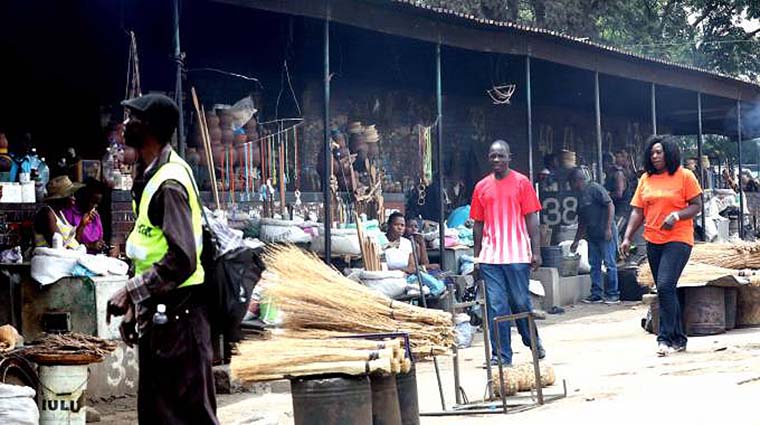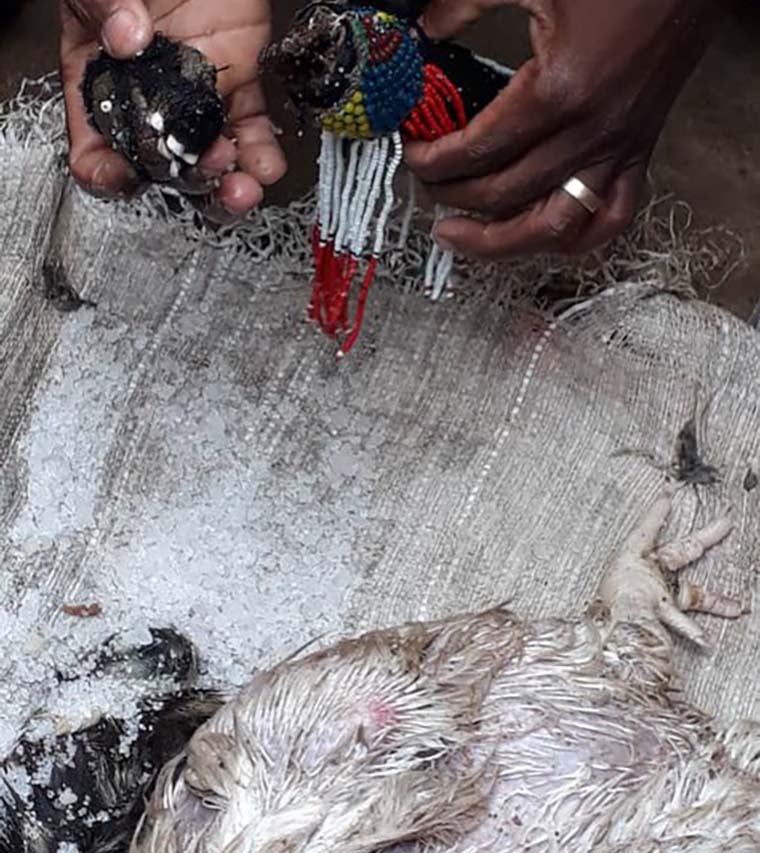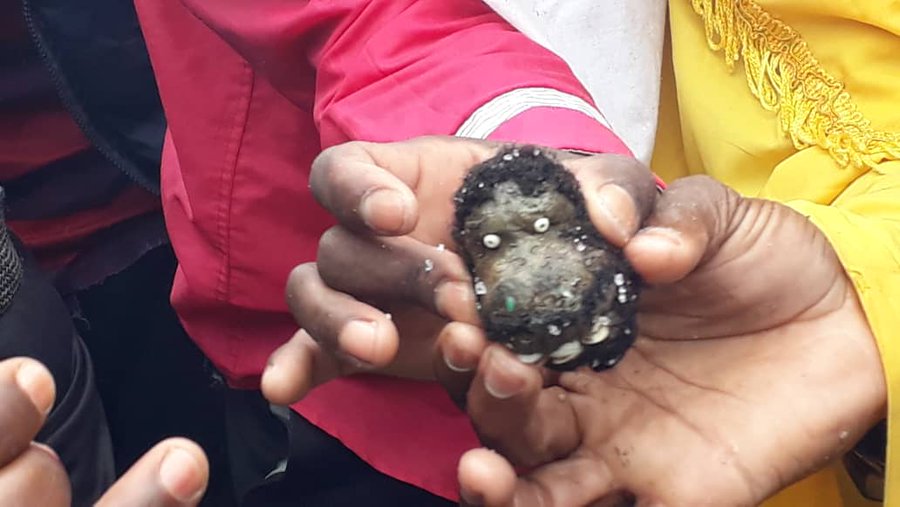HARARE – Lameck Banda from Waterfalls, Harare is a shrewd and cunning businessman.
Better known as Sekuru Chitsuwi, Banda understands the basic premise of capitalism: supply and demand.
Each day, the 60 year-old wakes up at 4AM and goes to nearby wetlands and swamps, and collects frogs and small tortoises.
He takes these home, cleans himself up and takes his catch to his “factory” at Machipisa Shopping Centre in Highfield. There, Sekuru Chitsuwi gets down to the task of tying colourful beads around the frogs and tortoises. He adds rubber bands, horns or chicken nails to the accessories.
And hey presto, you have yourself a “goblin”!
His major customers for these are “prophets” and self-professed witch-hunters (tsikamutanda), who spring these things on their clients and then claim to have discovered evil spirits, which they then proceed to “exorcise” — often for a pound of flesh.
Sekuru Chitsuwi says business is brisk.
“One might conclude that I am boasting but the truth is that my objects are being bought like hot cakes. Some of my clients are prominent prophets who always pay handsomely,” Sekuru Chitsuwi said.
Originally from Mozambique, he narrates how his business has given him a little infamy and some fortune.
“When I left Mozambique for this country I had nothing. Nothing. I am now a proud owner of a house in Waterfalls, several cars and my children attend expensive boarding schools,” Sekuru Chitsuwi said.


Sekuru Chitsuwi says prices of his “goblins” ranges from US$300 to US$700.
“I charge according to the object. Some of the objects need more time to work on them and I sometimes end up spending hours and even days on end working on one object. The objects must appear genuine,” he explained.
Asked if he does not feel bad that his products are used to defraud people, Sekuru Chitsuwi says that is not his concern.
“This is a business my friend. I am a manufacturer of some sort. All I do is to make these objects according to my clients’ specifications. What they will later on use the objects for is none of my business.”
Fake prophets are often in the courts for fraud.
In January, Isaac Nkalakhata from Binga was arrested after he tried to extort money from bus operators.
Armed with a live tortoise which was covered in wild animal skins, Nkalakhata approached several bus operators and extorted money from them.
He was jailed for six months.
In Bulawayo, three men were this year arrested for allegedly planting multi-coloured “charms” at a house, and then claiming to discover them. They told the home owner that the “charms” had caused the illness of a child, and demanded $7 000 as payment.
Sekuru Friday Chisanyu, the president of the Zimbabwe National Practitioners Association, says the police should clamp down on such fraud.
“These people are aiding criminals and should be brought to book. People are defrauded of thousands, if not millions, of dollars each year by the con artists. Those that are producing the fake goblins must be arrested and given deterrent jail sentences,” Sekuru Chisanyu added.
















